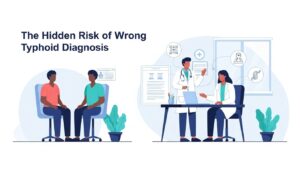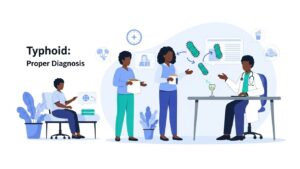Polycystic Ovary Syndrome (PCOS) is a complex and prevalent hormonal disorder that impacts a significant number of women during their reproductive years. Although it primarily affects the ovaries—the small organs responsible for storing a woman’s eggs—PCOS can also have far-reaching effects on various systems within the body. If left untreated, PCOS can lead to serious health complications, making early diagnosis and management crucial.
What is PCOS?
At its core, PCOS is a hormonal imbalance that interferes with the normal functioning of the ovaries. Typically, ovulation occurs when a mature egg is released from the ovary, ready for potential fertilization. However, in women with PCOS, this process is often disrupted due to insufficient hormone levels required for ovulation. When ovulation fails to occur, the ovaries may develop multiple small, fluid-filled sacs known as cysts. These cysts produce androgens—hormones commonly found in higher levels in men but present in smaller amounts in women. Elevated androgen levels in women with PCOS can lead to menstrual irregularities and a host of other symptoms.
Causes of PCOS: Unraveling the Mystery
The exact cause of PCOS remains unknown, but research suggests that insulin resistance may play a significant role. Insulin resistance occurs when the body struggles to use insulin effectively, leading to increased insulin levels. This excess insulin may contribute to higher androgen production, exacerbating PCOS symptoms. Additionally, obesity can further elevate insulin levels, worsening the condition.
Who is at Risk?
PCOS often runs in families, so if your mother or sister has been diagnosed with the condition, your risk may be higher. Insulin resistance and obesity are also key risk factors, underscoring the importance of a healthy lifestyle in managing PCOS.
Recognizing the Symptoms of PCOS
PCOS can manifest in a variety of ways, with symptoms ranging from mild to severe. Common signs include:
- Irregular or Missed Periods: Menstrual cycles may become infrequent, irregular, or even cease altogether.
- Ovarian Cysts: Many women with PCOS have enlarged ovaries or multiple cysts.
- Hirsutism: Excessive hair growth on the face, chest, stomach, and back.
- Weight Gain: Especially around the abdomen, which can be challenging to manage.
- Acne and Oily Skin: Hormonal imbalances can lead to persistent skin issues.
- Thinning Hair: Male-pattern baldness or thinning hair on the scalp.
- Infertility: Difficulty conceiving due to irregular ovulation.
- Skin Tags and Darkened Skin Patches: Small skin tags or patches of dark, thickened skin, often in the neck, armpits, or under the breasts.
Diagnosing PCOS: What to Expect
If you suspect you have PCOS, it’s important to consult with your healthcare provider. Diagnosis typically involves a comprehensive review of your medical history and a physical examination, which may include a pelvic exam to assess the health of your reproductive organs.
Additional tests may be conducted to confirm the diagnosis:
- Ultrasound: This imaging test can reveal the presence of ovarian cysts and assess the thickness of the uterine lining.
- Blood Tests: These tests measure hormone levels, including androgens, and may also check for insulin resistance, blood glucose levels, cholesterol, and triglycerides.
Managing PCOS: Treatment Options
Treatment for PCOS is tailored to each individual’s needs, considering factors such as age, symptom severity, overall health, and future pregnancy plans.
If you plan to become pregnant, your treatment may include:
- Lifestyle Modifications: A balanced diet and increased physical activity can help manage weight, improve insulin sensitivity, and reduce symptoms. These changes may also help restore regular ovulation.
- Ovulation-Inducing Medications: Medications can stimulate the ovaries to release eggs, though they may increase the risk of multiple pregnancies or ovarian hyperstimulation, which can cause bloating and pelvic pain.
If pregnancy is not a goal, treatment may focus on managing symptoms:
- Birth Control Pills: These can regulate menstrual cycles, lower androgen levels, and reduce acne.
- Diabetes Medications: These drugs help manage insulin resistance, lower androgen levels, and promote regular ovulation.
- Symptom-Specific Medications: Additional treatments may target hirsutism or acne.
Potential Complications of PCOS
Women with PCOS face an increased risk of developing serious health conditions, including type 2 diabetes, high blood pressure, cardiovascular disease, and endometrial cancer. Fertility challenges are also common, making it important to work closely with a healthcare provider to manage risks.
Living with PCOS: Finding Support
The physical symptoms of PCOS, such as weight gain, excessive hair growth, and acne, can take a toll on self-esteem. Fortunately, cosmetic treatments like laser hair removal or electrolysis may help alleviate some of these concerns. It’s essential to discuss your symptoms and treatment options with your healthcare provider to find the best approach for your needs.
When to Seek Medical Advice
If you experience prolonged or heavy bleeding, it’s important to contact your healthcare provider for further evaluation.
Key Takeaways
- PCOS is a common hormonal disorder among women of childbearing age.
- It can cause a range of symptoms, including menstrual irregularities, excess hair growth, acne, and infertility.
- PCOS may increase the risk of serious health problems, such as type 2 diabetes and heart disease.
- Treatment is individualized and may vary depending on whether pregnancy is a goal
Contact Well-Life Hospital
At Well-Life Hospital, a renowned infertility treatment centre located at No. 12 Atbara Street, Wuse 2, Abuja, FCT, we are dedicated to providing compassionate and comprehensive care to help you on your journey to parenthood. To learn more about our IVF services and to book a consultation, visit our website or contact us today.
- Website: welllifehospital.com
- Instagram: @welllifehospital
- Facebook: Well Life Hospital
- Twitter: @Well_Life_H
- TikTok: @welllifehospital
- YouTube: Well Life Hospital
- Mobile : +234 906 000 4314
… Your wellbeing is our goal






